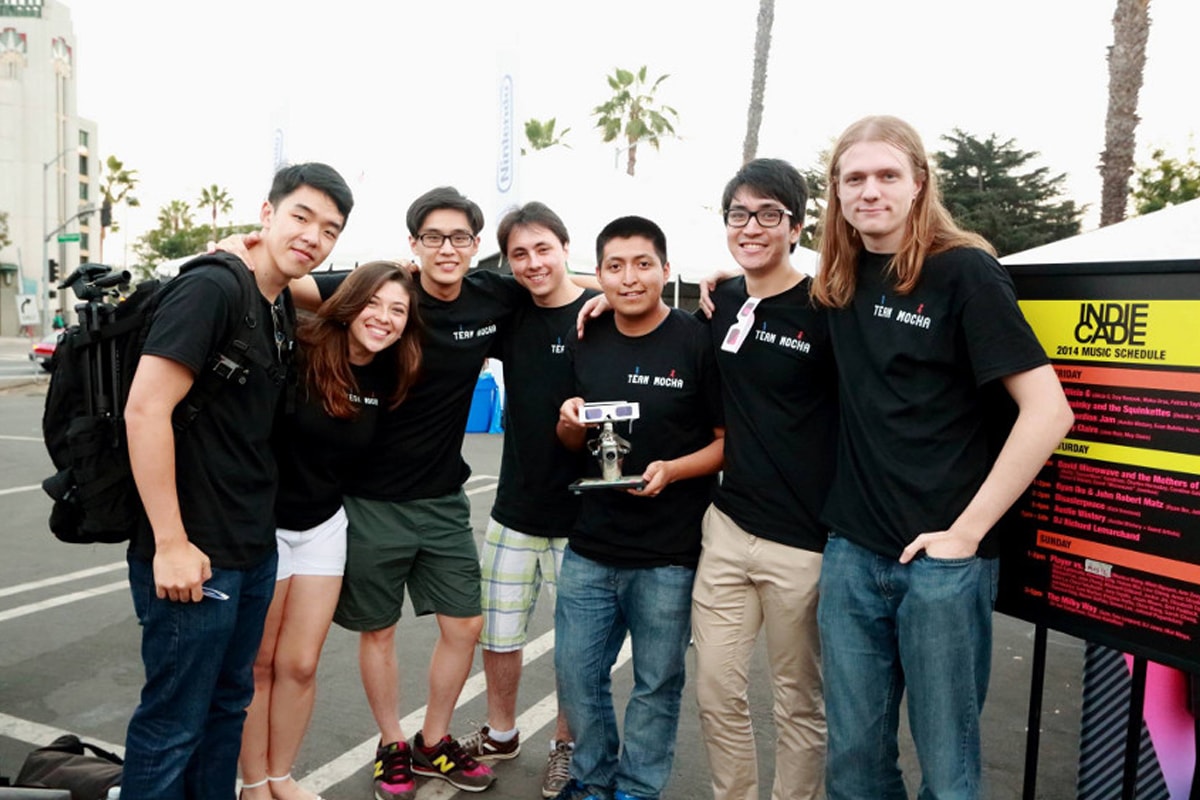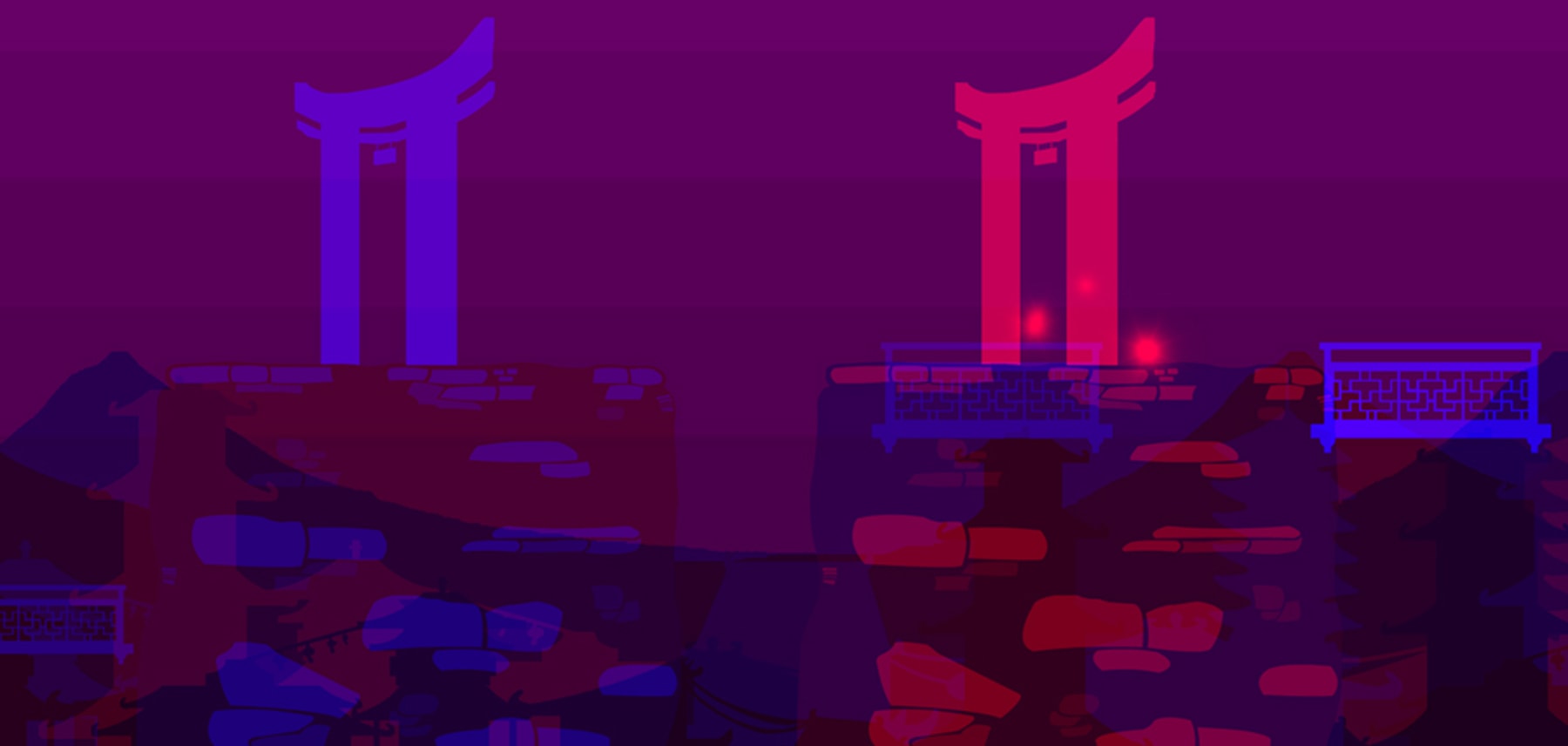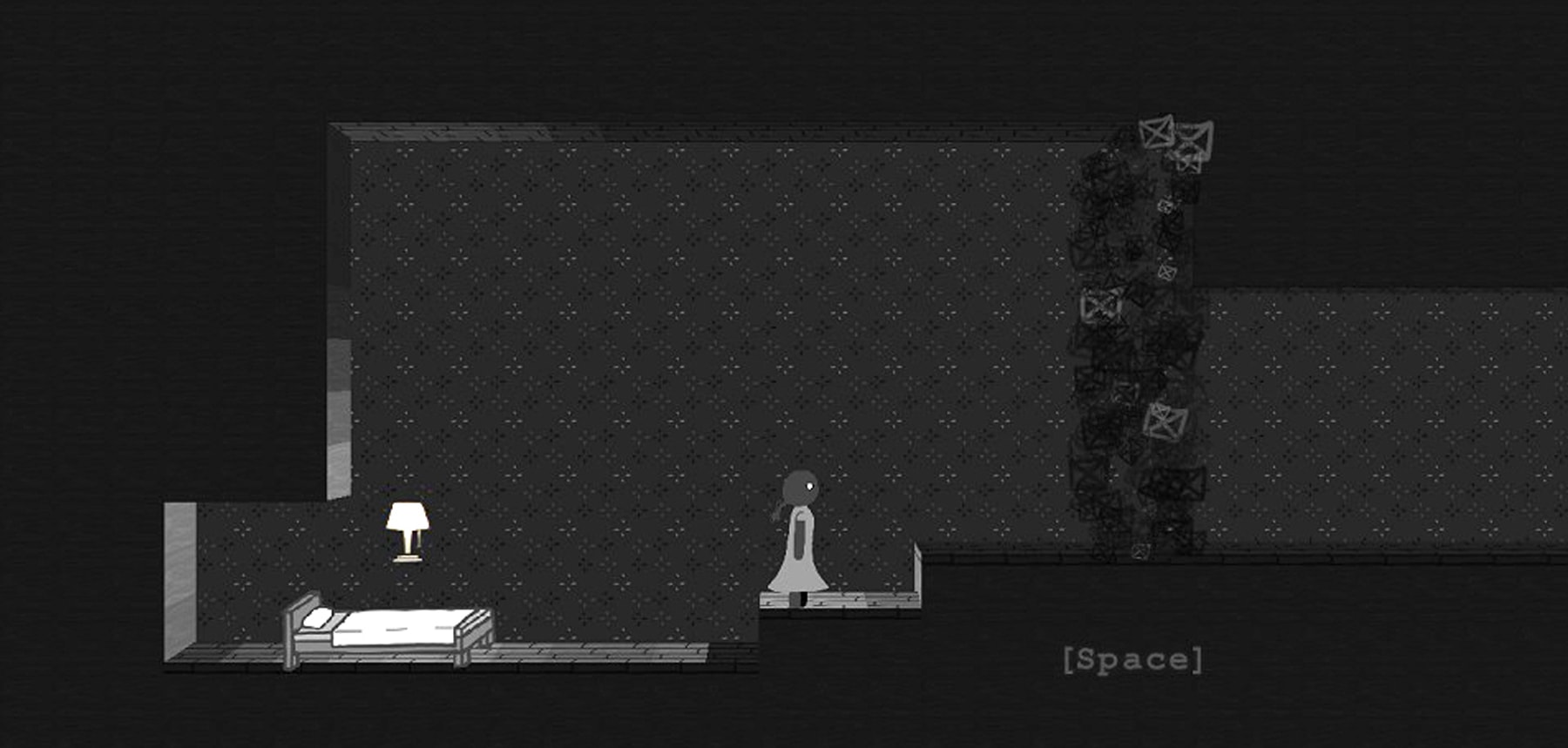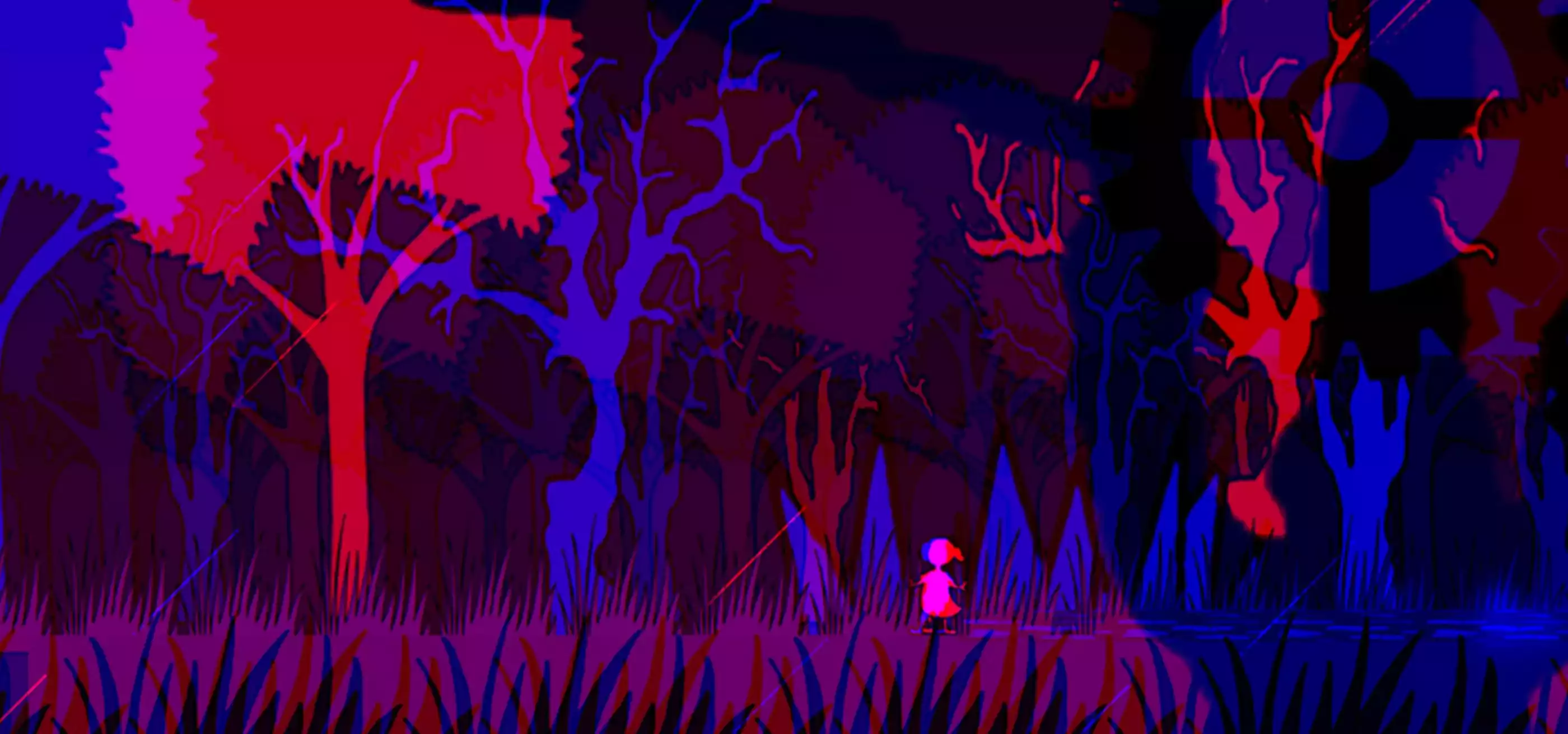The students of Team Mocha received a welcome surprise earlier this month when their game Sunder took home the “Audience Choice” award at the 2014 IndieCade festival in Culver City, California.
Voted on by attendees as the best game of the festival, Sunder delighted participants with its clever take on cooperative play.
“We got to demo with about 500-plus people … and it was one heck of an experience,” Nicholas Fuller, technical director for Team Mocha, says. “We got the most amazing feedback. We had people running out and finding their friends to go play.”

In Sunder, two players must wear color-filtering glasses (sometimes called “decoder” glasses), blue lenses for one player and red lenses for the other. By doing so, each player sees a different version of the game world, with their own character to guide and control.
We had people running out and finding their friends to go play.”
While the game can accurately be described as a puzzle platformer, with obstacles and enemies to overcome, the challenge of the game hinges not so much on reflexes but rather communication.
“There are these kinds of puzzles where one player has access to an object that exists in their world that doesn’t necessarily exist in the same form in the other player’s world,” Nicholas says. “One person sees an acorn, and the other person sees a spike ball that will kill them. So one player is safe to touch it and the other player isn’t.”
Only by communicating what each person sees can players hope to progress.
During an early boss fight, for example, while the enemy appears on only one player’s screen at a time, it’s the other player who must push objects off of a platform to land on the boss.

“But since the player doing the pushing can’t see the boss, the actual coordination of where the boss is — which side to drop it off, which platform — becomes this kind of frenzied communication,” Nicholas says. “We had lots of couples play it … and those were really interesting, because they were much more prone to arguments.”
Sunder wasn’t the only DigiPen game at the festival.
A lot of the people high-fived each other at the end, which I thought was the coolest thing ever.”
Selected as one of 36 IndieCade finalists, the dark puzzle platformer Close Your Eyes, created as a freshman project by Team Indoor Sunglasses, also made its appearance.
“Our booth at IndieCade was right next to DoubleFine, and across the way there was Risk of Rain. There were all these good games,” Neil Frankwick, the producer on Close Your Eyes, says. “The people there were really cool.”
One of the best things about being at IndieCade, Nicholas says, was seeing such positive reactions from a wide range of player demographics, including young children and other less experienced game players.
“A lot of the people high-fived each other at the end, which I thought was the coolest thing ever,” he says. “Seeing that, I think, kind of validates our design decisions. It felt like we did a good job.”
IndieCade is an international festival that celebrates innovation and artistry in interactive media. Learn more at www.indiecade.com.

Sunder was developed by students Nicholas Fuller, Kai Chaun Hsiao, Alejandro Mendez, Eduardo Righi, Kenneth Tan, and Jose Villegas. Close Your Eyes was developed by Neil Frankwick, Enrique Rodriguez, Hsi-hung Shih, and Kazutoyo Yamamoto.
